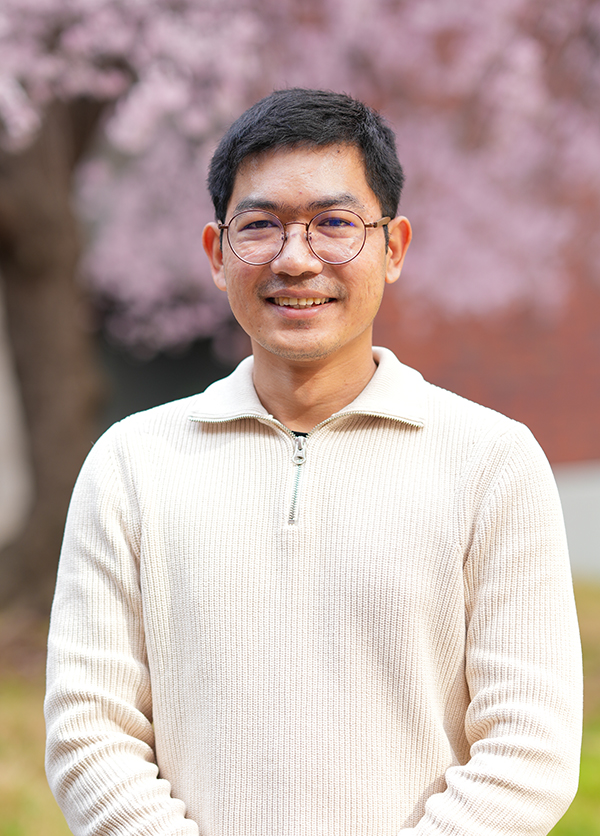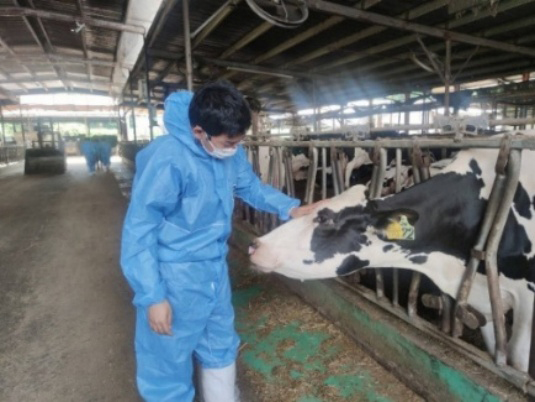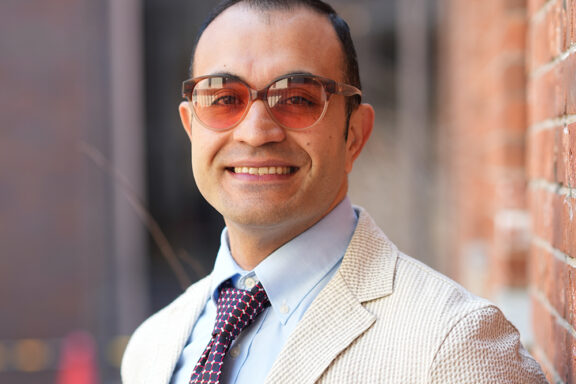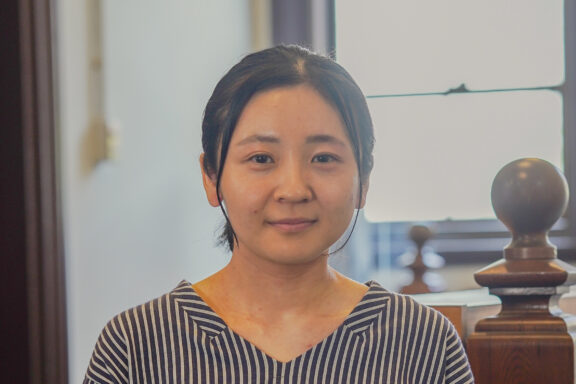
Research division and affiliation: Environmental Coexistence, Research Associate
PhD, Materials and Informatics
Research areas: Computer Science, AI and Machine Learning, Digital Healthcare, Smart Agriculture, Environmental Monitoring
Mingalaba! (That’s “hello” in Burmese!) I am Ye Htet from Myanmar (also known as Burma), whose academic journey started in strawberry fields and led to smart elderly care systems in Japan. It has been a wild ride from farming sensors to stereo cameras, and I am excited to share a bit of my previous path here.
My academic career began in Electronics Engineering in my country, where I worked with sensors, circuit devices, and controller boards. During my Master’s studies, I combined IoT and machine learning to build an intelligent irrigation system for strawberry farms.[1] Agriculture is a big part of Myanmar’s economy, and I believed smart farming could help increase food production, especially on small-scale farms. My system used automatic drip irrigation and environmental controls to grow strawberries year-round, even in changing weather. Moreover, a Raspberry Pi equipped with cameras analyzed leaf health to detect nutrient deficiencies, while IoT technology kept users informed in real time.

Over time, I became more interested in how technology could solve real-world problems, especially those faced by vulnerable groups. This personal motivation led me to shift from electronics to computer science. Then, I had an opportunity to study in Japan and explore more challenges in 2019.
Before joining the Center for Southeast Asian Studies (CSEAS) in March 2025, I completed a Ph.D. at the University of Miyazaki. My research focused on digital healthcare for elderly care and smart livestock monitoring. For my doctoral work, I developed a visual-based elderly care system.[2] With Japan’s aging population growing fast, care facilities are struggling with labor shortages. While smart devices and robots can help, issues like data privacy and reliability remain. Thus, our system used special cameras (stereo depth cameras) to monitor elderly people’s daily activities (sitting, standing, lying down, or using wheelchairs), while respecting their privacy. We also focused on detecting transitions between movements (e.g., sitting to standing), which are important for identifying potential health risks. This system was aimed at supporting caregivers by enabling continuous 24-hour monitoring and assisting healthcare professionals in making timely, informed decisions.

In addition to this work, I also participated in collaborative projects during my doctoral studies as a research assistant. These projects applied image processing and deep learning to monitor cows, tracking their behaviors and detecting health conditions.[3] These interdisciplinary experiences have broadened my perspective and deepened my commitment to using technology for the social good.

Now, as I take my first steps into the research environment at CSEAS, I feel grateful for the opportunity to grow as a post-doctoral researcher and engage in interdisciplinary work. It is motivating to be part of such a rich intellectual and collaborative environment. At the same time, I always carry with me a personal commitment: to use my research in ways that address the challenges facing my home country. I may be thousands of kilometers from Myanmar, but my heart is always tuned to its needs. From now on, I look forward to learning from the amazing people around me and contributing, in my own small way, to the Center’s mission of deeper understanding across Southeast Asia.
Notes
[1] Ye Htet, Htin Kyaw Oo and Thi Thi Zin, “Smart Irrigation: An Intelligent System for Growing Strawberry Plants in Different Seasons of the Year”, ICIC Express Letters, vol.12, no.4, pp.359–367, April 2021.
[2] Ye Htet, Thi Thi Zin, Pyke Tin, Hiroki Tamura, Kazuhiro Kondo, Shinji Watanabe and Etsuo Chosa, “Smarter Aging: Developing a Foundational Elderly Activity Monitoring System with AI and GUI Interface,” IEEE Access, vol.12, pp.74499–74523, May 2024.
[3] Thi Thi Zin, Ye Htet, San Chain Tun and Pyke Tin, “Artificial Intelligence Fusion in Digital Transformation Techniques for Lameness Detection in Dairy Cattle”, International Journal of Biomedical Soft Computing and Human Sciences, vol.28, issue.1, March 2023.





